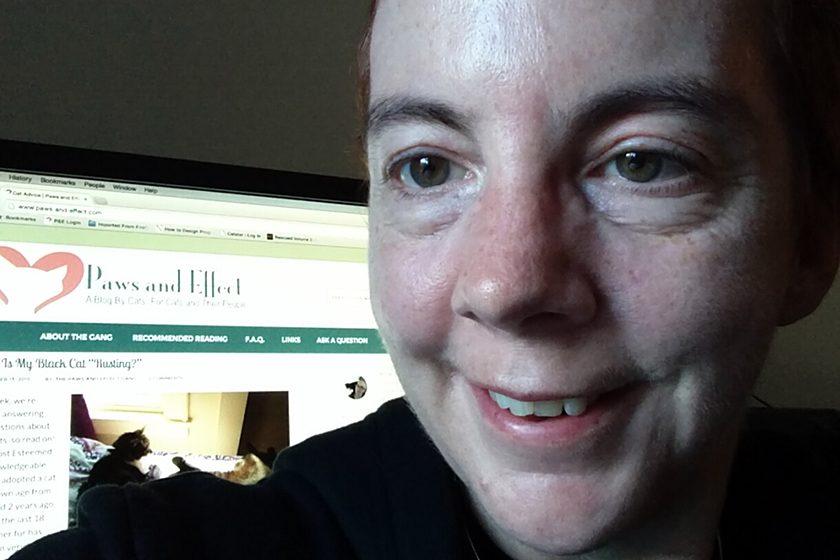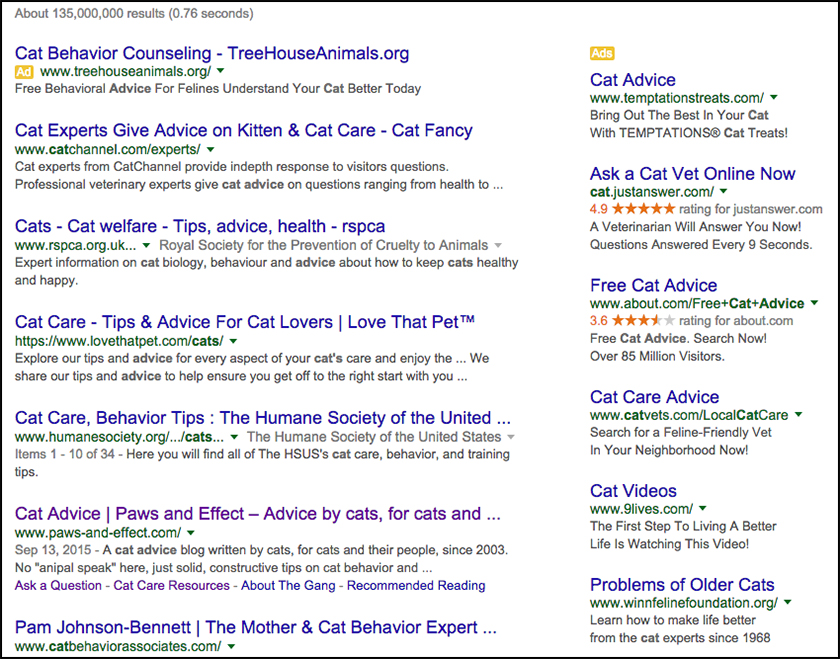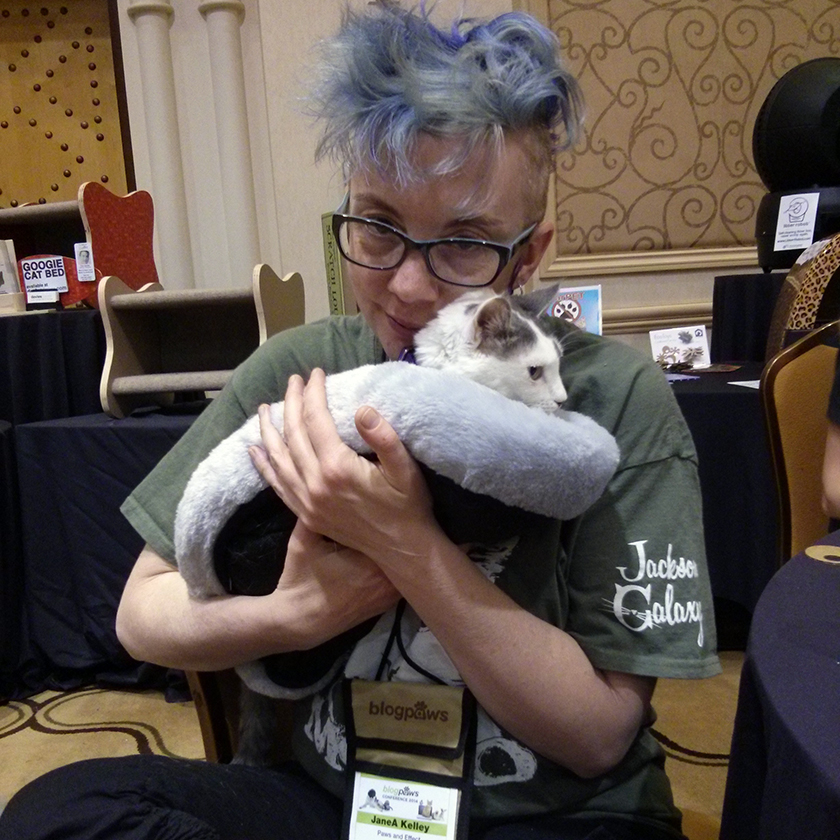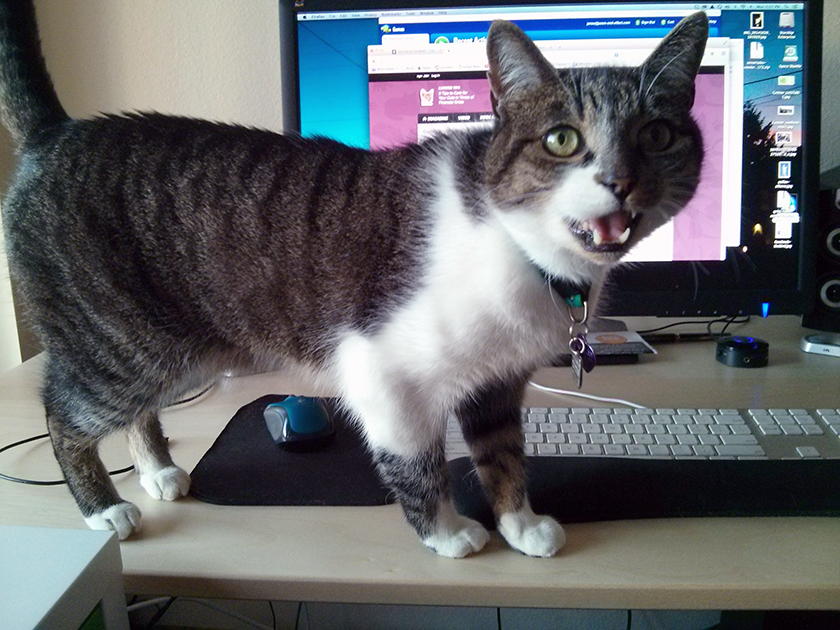How Do You Become A Successful Pet Blogger?
Guest post by JaneA Kelley
In the years I’ve been writing about cats, I’ve seen a lot of blogs come and go. The blogger starts out with great enthusiasm, but in a few months or a couple of years, the inspiration fades away and the hopes with which the blogger started out – whether that’s fame, money, or whatever – don’t come to fruition, and the effort to blog just doesn’t seem justified anymore.
Meanwhile, I’ve been writing a weekly post in my blog, Paws and Effect, since 2003. In those 12-plus years, I think I’ve missed maybe one or two weeks. How did I do it? There’s no magic formula, but here are a few tips for those of you who are thinking about starting a blog or are in the early stages of your blogging career.
- Find your niche.
You know what you’re passionate about; otherwise you wouldn’t be thinking about starting a blog. But there are hundreds if not thousands of pet blogs out there. What’s going to make your blog unique? What is it about your approach and your pets that’s going to set your signal apart from the noise of the internet? Lots of people, myself included, write about cat advice – but if you’re going to write about cat advice, what’s going to differentiate your blog from mine or any of the myriad others focused on helping cats and people live better together? - Find your voice.
Once you’ve found your niche, it’s important to find your voice as an author. Everyone has a different way of communicating. You can write cat humor, but what specifically makes your humor different from others? Are you more of a deadpan joker or a satirist or a physical comedian? Is your “voice” in your photos or illustrations? It turned out for me that my voice was the voices of my cats: I started my writing career writing fiction, and I discovered that one of my strengths is dialogue. With that in mind, I imagined what my cats would sound like if they were giving answers to people’s questions … and a blog format with a unique voice emerged as a result. - Deliver solid content.
No matter what anyone may tell you, the trick to developing a large and steady following for your blog is to deliver high-quality content on a regular basis. No amount of SEO will help a blog that has poorly written or infrequently delivered posts. Google loves good content, too, so the better you do at this, the higher you’ll move in search engine rankings.
- Always be professional.
Yes, you’re writing a blog and not hard-hitting investigative journalism, but there’s no reason to have poor spelling and grammar in your blog. If you hope to attract advertisers or find other ways to monetize your blog (like, for example, developing a freelance writing career), you’ll need to produce well-written and well-edited posts. Being professional also means admitting when you make a mistake and doing your best to make it right – something I’ve had to do in the past – as well as living up to commitments you’ve made and answering inquiries about your blog in a professional and mature tone. - Have an ethical foundation from which you operate.
My personal ethic is that I won’t promote or write sponsored posts for products I wouldn’t use for my own cats. Since I write an advice blog and my readers trust me to provide them with good information, this is really important to me. Having a blog full of sponsored posts for any brand that will throw a campaign your way is an excellent technique for alienating readers. - Connect with other bloggers.
I’ve learned more than I could have imagined by attending the BlogPaws conference. It’s worth making the time and budget to attend because the lessons you’ll learn and the connections you’ll make will only help you to become a better blogger. Conferences can also lead to opportunities to monetize your blog, and better yet, you’ll have the chance to make friends with some amazing people. I count several people I met at BlogPaws among my best friends; we’ve supported one another through hard times and cheered one another’s successes, and I’m so grateful I met them.
- Know how much time and energy you can commit to your blog.
Some people can post every day. Some people have the time to create amazing videos. Some people are excellent artists and photographers. But a lot of us have full-time jobs and freelance work, too. For me, one well-written post a week is what I can do consistently, so that’s what I do. It’s a formula that’s worked for me. - Know your definition of success and have a plan for getting there.
If success means you can make a living from your blog, you’re going to have to treat it like a business. Make a business plan, set goals, develop a rate card for advertising, and realize that it takes a lot of work to be able to make a living as a blogger. If your definition of success is “my blog will be a vehicle to market my books,” have a plan to do that. And so on. My definition of success when I started was just “write one post a week.” As my blogging career developed and my readership increased, my definition changed to “write one post a week, have fun, and earn enough to pay my web hosting costs.” I still don’t rely on my blog to pay my bills, but it has jumpstarted my freelance writing career, which certainly has supplemented my income.
- Don’t be afraid of change.
You may start your blog with one niche or theme, but as you continue to write, you find that there’s something else you’re more passionate about. That’s okay. Many bloggers have changed their focus very successfully. The change needs to be well thought-out, and you need to realize that some of your readers may fall away when you change your format, but others will come aboard. What matters is that you’re following your passion, because that will give you the drive to keep blogging.
What other tips do you have for new bloggers? If you’re a beginning blogger, do you have any questions you’d like to ask? Please do so in the comments, and I’m sure I’m not the only experienced blogger who will be glad to chime in with advice.
JaneA Kelley is the webmaster and chief cat slave of the award-winning blog, Paws and Effect. She is a contributing author for the print and online versions of Catster Magazine, and serves as the secretary and social media manager for Diabetic Cats in Need, a nonprofit dedicated to helping people care for their diabetic cats.








